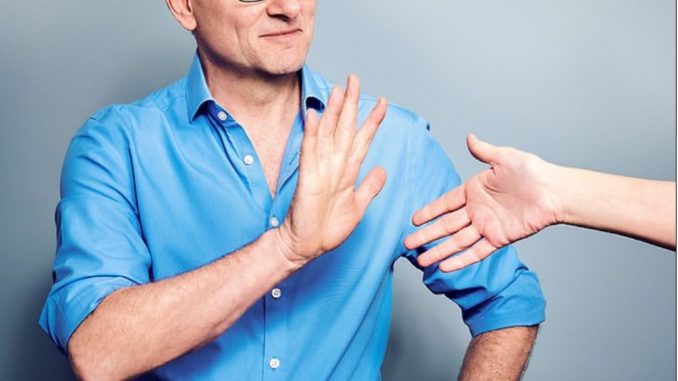
How worried am I about coronavirus? The truth is, quite a lot. And I have been since reports of the infection began to emerge from China at the end of last year.
Now, as Chief Medical Officer Chris Whitty told MPs last week: ‘It is here.’
As of last night, there were more than 200 British cases. The majority contracted the virus in a hotspot abroad, but a growing number hadn’t had a risky travel history. So community spread has begun.
This is when people are infected without knowing how they were exposed. It means a shift in tactics.
Mitigation measures will be put in place to slow the spread of infection and prevent health services being overwhelmed. Over the coming weeks, Ministers will have to make difficult decisions over whether to restrict people’s movements.
This could mean cancelling public events such as football matches, closing schools, enforcing working from home – or even locking down entire cities.
This is what happened in Wuhan, the Chinese city that was the epicentre of the initial outbreak. While frightening, these measures are the reason that infection rates there are now falling, and community spread in other Chinese cities has been avoided.
Importantly, Covid-19 appears to be more infectious than normal flu. And, at least for older people, it’s more dangerous.
I’m 62 years old and male, which puts me into two of the higher-risk categories.
Data from China suggests that men are 50 per cent more likely to be killed by it, possibly because women tend to have stronger immune systems.
We also know that, whether you’re male or female, after the age of 50, your chance of dying from a Covid-19 infection climbs dramatically. If you are under 50, the odds of you dying from coronavirus are 0.4 per cent.
If you are in your 60s, the odds are ten times higher – more like four per cent. And if you are in your 70s, it is higher still, at eight per cent. By your 80s, it is up to nearly 15 per cent.
One reason death rates are so much higher in people over 60 is that at that age we are more likely to be living with another condition, such as diabetes or heart disease. Having another health condition means the symptoms are more severe.
As with flu, many deaths from Covid-19 are due to acute respiratory distress syndrome. With this, you get a build-up of fluid in the small air sacs of the lungs. This restricts how much you can breathe and reduces the amount of oxygen you take in and supply to your vital organs.
So far, about half the Covid-19 patients who have developed acute respiratory distress syndrome have died from it.
Aside from how worried we should be, the main thing I’m asked is: What’s the best way to avoid getting ill?
It’s obviously something I’ve been keen to find out myself.
This virus is spread in large droplets, mainly by coughing and sneezing, and when it lands on a surface it can survive there for hours, or even days.
That is why washing your hands is so important.
Wearing masks can reduce the risk of inhaling the virus, or spreading it to others, but only if you do it properly.
I saw a woman on the train a few days ago who was wearing a mask for most of the journey.
At one point, however, she pulled it off to answer her phone and a few moments later she rubbed her eye.
So what she had just done was transfer any bugs that might have been on her hands, her phone or the outer surface of her mask into her eye and from there down to her lungs.
If you are already infected, or nursing someone who is infected, then do wear a mask, but otherwise I wouldn’t bother. Instead, I have opted for the following strategies:
END

Be the first to comment